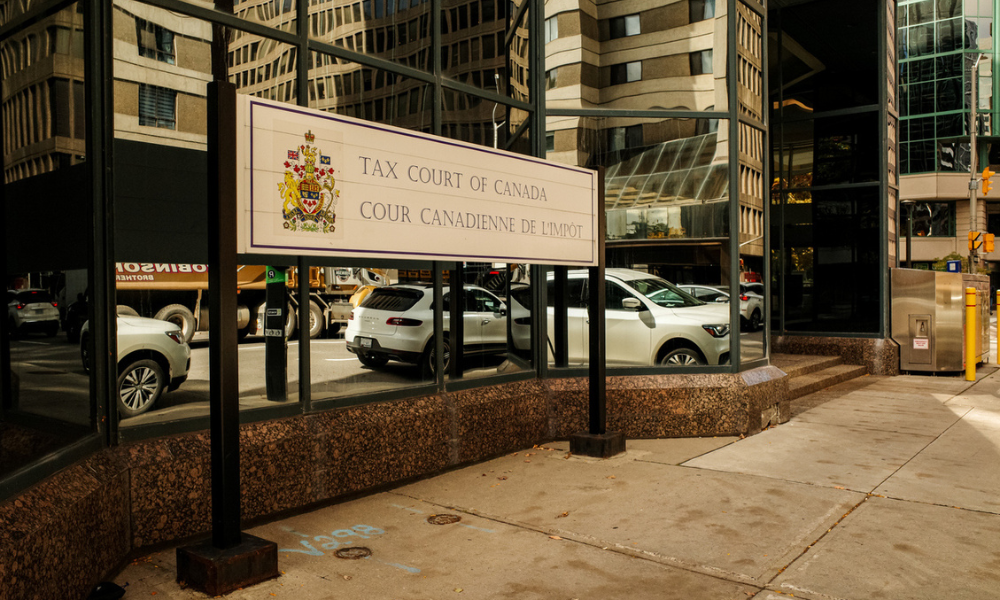A British Columbia judge has awarded special costs to a food distribution company after finding its governmental opponents engaged in conduct that was “reprehensible and deserving of rebuke or reproof.”
The Los Angeles Salad Company had sued the Canadian Food Inspection Agency and the Attorney General of Canada over an allegedly negligent investigation into a 2007 food scare that identified baby carrots it distributed as the possible cause of illnesses in the Calgary area.
During the course of litigation, government lawyers acting for the defendants raised concerns about an affidavit filed by one of the food company’s lawyers, Tina Mihoc of Davis LLP. They moved to have the affidavit struck, alleging it offended professional conduct guidelines because it contained inaccurate assertions of evidence on disputed facts.
Mihoc filed a responding affidavit to answer the charges and a two-day hearing followed on the admissibility of both affidavits, where Saskatchewan-based Justice Canada lawyer Scott Spencer persisted with his argument that the facts in them were spun or incomplete “when it was obvious that the statements in issue were true,” wrote B.C. Supreme Court Justice David Harris in his Nov. 17 judgment.
Harris added that there was no foundation for calling into question Mihoc’s professionalism and integrity, and noted that she had actually drawn the “disputed” facts from the defendants’ own evidence. He also dismissed Spencer’s argument that the second affidavit was a tactical litigation decision, saying the allegations levelled against Mihoc “could not go unanswered.”
“On a number of occasions, defendants’ counsel reiterated that he was not suggesting that the faults he found with the affidavits were the result of intentional conduct by Ms. Mihoc. He said he was not impugning her professional integrity or raising a matter of a disciplinary nature. No more did Mark Anthony intend to praise Caesar when he came to bury him,” Harris went on.
“If their objections were valid and drained of any suggestion of impropriety, the best that could be said for Ms. Mihoc was that she was a thoroughly incompetent counsel who, among other failings, could not distinguish between giving opinion evidence she was unqualified to give and evidence of fact. She inadvertently prejudiced her own clients’ case by binding them to evidence against their interest. In my view, even drained of any suggestion of impropriety, these allegations are damaging to a counsel’s reputation. The damage is even greater to a young counsel making her way in the profession and attempting to build a career on the strength of her professional competence and reputation.”
Harris did, however, say that he understood Spencer’s concern about seeing “barrister room discussions” quoted back at him in Mihoc’s affidavit and said he was unclear about why they were necessary. He also said it was “apparent that relations between counsel were strained even before” the affidavit objections were raised.
Taken together with Spencer’s refusal to accept a “reasonable” compromise suggested by Mihoc’s co-counsel to get around the admissibility of the affidavits, Harris found the defendants’ conduct crossed the “reprehensible” threshold necessary for a rare special costs order.
The hearing on special costs came in October 2011, several months after Los Angeles Salad’s claim was dismissed when Harris determined the firm was not owed a duty of care by the defendants.
The Los Angeles Salad Company had sued the Canadian Food Inspection Agency and the Attorney General of Canada over an allegedly negligent investigation into a 2007 food scare that identified baby carrots it distributed as the possible cause of illnesses in the Calgary area.
During the course of litigation, government lawyers acting for the defendants raised concerns about an affidavit filed by one of the food company’s lawyers, Tina Mihoc of Davis LLP. They moved to have the affidavit struck, alleging it offended professional conduct guidelines because it contained inaccurate assertions of evidence on disputed facts.
Mihoc filed a responding affidavit to answer the charges and a two-day hearing followed on the admissibility of both affidavits, where Saskatchewan-based Justice Canada lawyer Scott Spencer persisted with his argument that the facts in them were spun or incomplete “when it was obvious that the statements in issue were true,” wrote B.C. Supreme Court Justice David Harris in his Nov. 17 judgment.
Harris added that there was no foundation for calling into question Mihoc’s professionalism and integrity, and noted that she had actually drawn the “disputed” facts from the defendants’ own evidence. He also dismissed Spencer’s argument that the second affidavit was a tactical litigation decision, saying the allegations levelled against Mihoc “could not go unanswered.”
“On a number of occasions, defendants’ counsel reiterated that he was not suggesting that the faults he found with the affidavits were the result of intentional conduct by Ms. Mihoc. He said he was not impugning her professional integrity or raising a matter of a disciplinary nature. No more did Mark Anthony intend to praise Caesar when he came to bury him,” Harris went on.
“If their objections were valid and drained of any suggestion of impropriety, the best that could be said for Ms. Mihoc was that she was a thoroughly incompetent counsel who, among other failings, could not distinguish between giving opinion evidence she was unqualified to give and evidence of fact. She inadvertently prejudiced her own clients’ case by binding them to evidence against their interest. In my view, even drained of any suggestion of impropriety, these allegations are damaging to a counsel’s reputation. The damage is even greater to a young counsel making her way in the profession and attempting to build a career on the strength of her professional competence and reputation.”
Harris did, however, say that he understood Spencer’s concern about seeing “barrister room discussions” quoted back at him in Mihoc’s affidavit and said he was unclear about why they were necessary. He also said it was “apparent that relations between counsel were strained even before” the affidavit objections were raised.
Taken together with Spencer’s refusal to accept a “reasonable” compromise suggested by Mihoc’s co-counsel to get around the admissibility of the affidavits, Harris found the defendants’ conduct crossed the “reprehensible” threshold necessary for a rare special costs order.
The hearing on special costs came in October 2011, several months after Los Angeles Salad’s claim was dismissed when Harris determined the firm was not owed a duty of care by the defendants.







